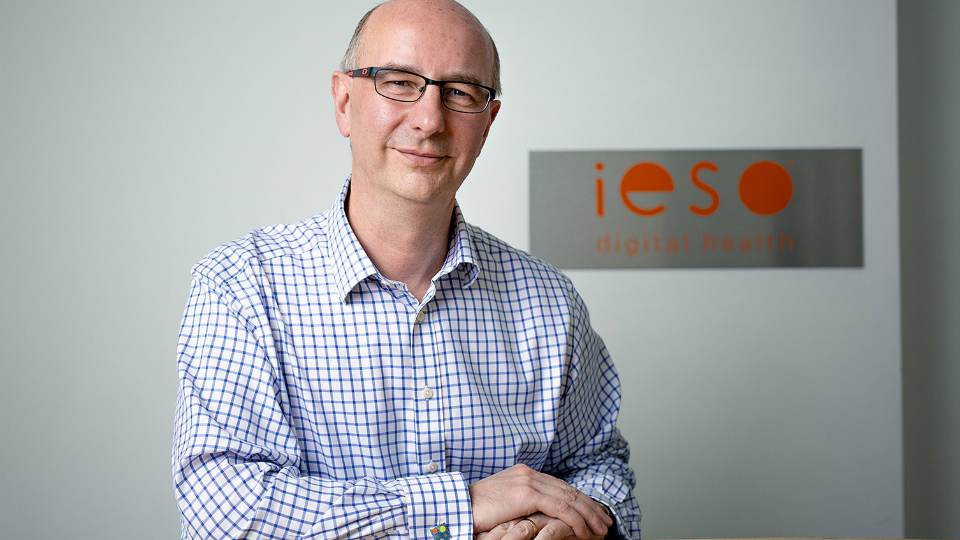Mental health disorders could cost the global economy some $16trn by 2030, according to the World Economic Forum. An estimated 300m people worldwide suffer from depression alone yet some estimates suggest that around two-thirds of people experiencing a mental health challenge go unsupported. “Even in wealthy nations such as the US and the UK, over 50% of people may receive no care.” the WEF notes. “Such large diagnostic and care gaps call urgently for novel solutions.”
Step forward Ieso Digital Health, which aims to transform mental health delivery through an online platform where patients can receive one-to-one, evidence-based cognitive behavioural therapy (CBT). For their appointments, patients simply log in and speak to their therapist by typing back and forth on their smartphones. Sessions usually take place once a week and last up to 60 minutes.
As the recent report by the ScaleUp Institute and Barclays noted, are not always naturally perceived as high growth – yet many are actively scaling – and have limited ability to receive investment but 28 social businesses have received more than £3m in investment. Ieso is one of them.
The company started in 2002 with angel funding under its former name of Psychology Online. In 2009 a clinical study published in The Lancet gave the thumbs up to online therapy and Imperial Innovations became its first institutional investor. In 2013, when it signed its first major contract with an NHS Trust, growth accelerated and over the next four years further rounds of finance were raised from angels, impact investment funds and VC firms. In 2017, the company raised £18m in a round led by Draper Esprit and Touchstone Innovations.
Today, the Cambridge-based company has a presence in 70 NHS Trusts and is treating up to 17,000 patients. It is the UK’s largest provider of online CBT. Headcount has doubled over the past two years to 80, turnover has grown to £7.5m, and is moving into profitability. And, vitally, the evidence is clear that it achieving better outcomes for mental health patients.
Initially, the contracts given to Ieso were from NHS Trusts trying to manage their waiting lists. Now, says Pitchford, some trusts are using Ieso for a substantial proportion of mental health outpatient treatment as it provides a quicker path to therapy for their patients. “We are not just about helping to relieve waiting lists – we have to be seen as part of the regular pattern of treatment of mental health.”
With revenues from the NHS growing at a projected annual clip of 40%, Ieso has lessons for other scaleups about how to win contracts with this organisation. “It is a good organisation to work with,” says Pitchford, “but there are multiple stakeholders and you have to be persistent as you need all of them to say yes. There is a lot of blocking and tackling to do with each NHS Trust and individual clinical commissioning group. We are actively marketing to get into each mental health provider and it is hard work.”
One frustration is that even though winning more contracts provides more references for procurement teams to get comfort, “each Trust still tends to want to run a pilot before they will fully adopt – irrespective of the proven experiences of others. It is far from a single organisation and it could be smoother and quicker to gain adoption. But that is the nature of the beast,” he says.
Pitchford had been close to Ieso for many years before stepping into the CEO’s chair. Previously he was chief investment officer at Touchstone Innovations, so he has seen the company’s growth from the perspective of an investor and a non-executive director. “Never under-estimate how much a cash-hungry business needs a capital strategy,” he says. “A well capitalised business helps you win good people and exploit market opportunities.”
And there are huge opportunities.
“Our model of service can deliver better outcomes and better patient experiences. There is a massive market for what we are doing in the UK, and we could grow both outside the NHS in the UK as well as internationally. The technology platform itself could be licensable.”
As the mode of delivery is text based, Ieso already has 220,000 hours of transcripts of these conversations. Clinical data science teams are working through these transcripts to develop AI and machine learning within the current platform. Currently this helps clinical supervisors to peer into therapists’ sessions and guide them. “It transforms quality control,” says Pitchford. Eventually, he adds, AI “will sit alongside therapists and support them in real time – watch this space.”
But there is plenty of local demand for data scientists in Cambridge, so recruiting talent is a challenge. “What we have in our favour is a strong, mission-led purpose,” says Pitchford. We treat patients every day and are making a difference. What would a talented data scientist rather do: enhance an online shopping experience, or cure mental health?”

"Never under-estimate how much a cash-hungry business needs a capital strategy. A well capitalised business helps you win good people and exploit market opportunities."
Nigel Pitchford, CEO, Ieso Digital Health
